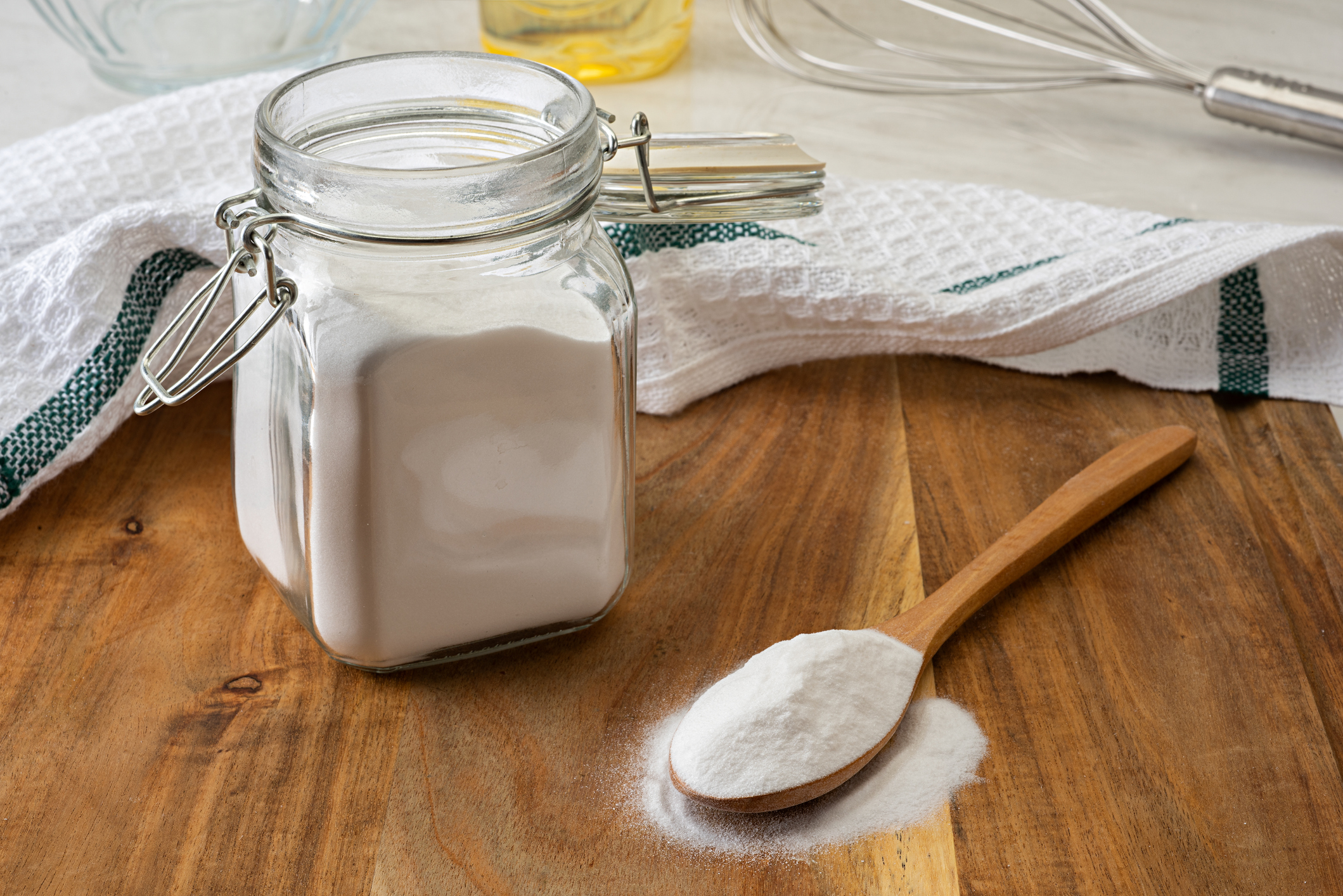Does baking soda kill ants? Why this tried-and-tested method could help stop an infestation in its tracks
Ants may be small in size – but they can cause problems around the home. Here's how the professionals eliminate them with baking soda


When you’ve got an unwanted ant infestation on your hands, the search for a simple home remedy may lead you to baking soda. But is this kitchen staple really effective in helping you get rid of ants inside your home or in your backyard?
Ants generally build nests outside, but food, beverages and moisture can attract them indoors, making tackling these insects early essential. Ants are very common, and like fruit flies and gnats, are likely to be a nuisance in high summer. The good news is that proven cleaning tips can keep them at bay, along with common pantry staples, such as baking soda, and even vinegar.
We’ve got the lowdown on whether baking soda kills ants, plus the experts’ guidance on keeping your home and patio ant-free.
Does baking soda kill ants?
Baking soda is one of the most effective way to take out an ant infestation. And, it is always a good idea to target the whole colony at once if you want to stop the outbreak in its tracks.
You might be wondering why do ants come into the house? 'Water and a wide variety of food attract ants,' says Rachel Crow, garden editor at Homes & Gardens. 'And when that brings them inside it’s important to know how to get rid of ants. These are the options.'
Fortunately, ants will do most of the hard work for you – as foraging pests, they will seek out food and carry it back to their nest for their colony. If you lace their food source with baking soda, you can stop the entire colony with minimal effort or expense.

Should you get rid of ants?
It is important to remember that ants aren't all bad news. While you might spot little piles of soil revealing the entrance to a nest between the cracks in paving, or maybe a pin-prick bite will be your first warning that ants are active in the yard. Small numbers of ants are always around and aren’t generally a problem. Ants do some good by aerating soil, helping to break down organic material, and devouring other pest insects. However, if numbers build up their nests can undermine plants; they ‘farm’ aphids on plants causing considerable damage; and some species like the red ant, wood ants and flying ants can bite.
There are more than 1,000 ant species in the US. The carpenter ant tends to be the most common and problematic. They often make nests close to seating areas where food crumbs provide an easy meal, so the first line of defence is good hygiene. Clear up around outdoor eating areas; don’t leave pet food on the ground for long periods; make sure rubbish bins are covered; and keep compost bins enclosed and turn them regularly to disturb nests.
Will baking sofa and vinegar kill ants?
Homemade bug sprays should only be used as a short term solution to kill or get rid of ant infestations – at the same time as treating pests, think of adding other plants to your yard that will encourage insects and animals that prey on the problem bug, such as beetles, lizards, caterpillars and toads.
It seems that there is no end to the abilities of vinegar, especially when you take into account the numerous ways of cleaning with vinegar, but did you know that it can also be used as a bug spray when combined with water and baking soda?
Simply sprinkle baking sofa directly on an ant nest, then spray with white vinegar. This will cause an a foam-like reaction to help kill the nest. The acetic acid in the vinegar will treat a wide range of garden and common houseplant pests but it requires contact.
How can I deter ants naturally?
There are also numerous fragrant flowers and plants that deter ants from your home, too. Basil has certain aromatic oils which are known to repel unwanted pests, such as ants, spiders, flies and mosquitos, while rosemary releases an intense odour to repel ants. Chrysanthemum is also a hard-working multi-tasker that will deal with multiple bugs at home. This popular flower contains pyrethrum, which is frequently used in natural insect repellents.
Sign up to the Homes & Gardens newsletter
Design expertise in your inbox – from inspiring decorating ideas and beautiful celebrity homes to practical gardening advice and shopping round-ups.

Jennifer is the Digital Editor at Homes & Gardens. Having worked in the interiors industry for several years in both the US and UK, spanning many publications, she now hones her digital prowess on the 'best interiors website' in the world. Multi-skilled, Jennifer has worked in PR and marketing and occasionally dabbles in the social media, commercial, and the e-commerce space. Over the years, she has written about every area of the home, from compiling houses designed by some of the best interior designers in the world to sourcing celebrity homes, reviewing appliances, and even writing a few news stories or two.
-
 Charli XCX's dining room is a 'treasure-trove' of one-of-a-kind pieces – it's the most unique hosting space I've ever seen (and surprisingly replicable)
Charli XCX's dining room is a 'treasure-trove' of one-of-a-kind pieces – it's the most unique hosting space I've ever seen (and surprisingly replicable)The singer's Tudor-style dining room features eclectic furnishings, a mix of patterns and bright colors that all work together beautifully
By Hannah Ziegler Published
-
 The 5 worst things you can do to your fridge – these will drive up energy costs and result in pricey and regrettable repairs
The 5 worst things you can do to your fridge – these will drive up energy costs and result in pricey and regrettable repairsIt's crucial to swerve these blunders, appliance experts warn
By Ottilie Blackhall Published